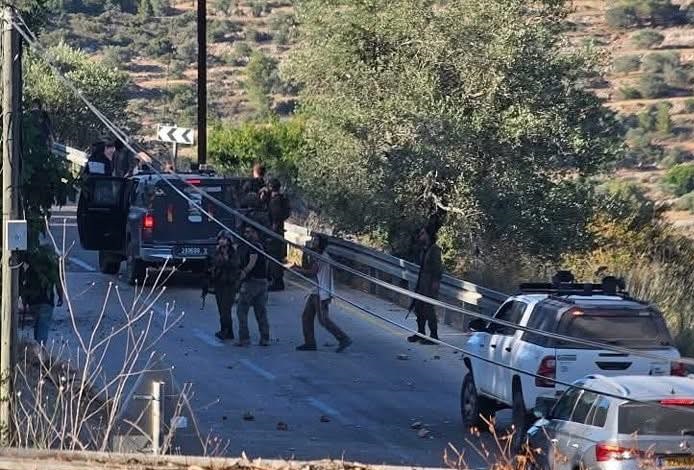HAIFA, Thursday, February 28, 2019 (WAFA) - Attorney Hassan Jabareen, general director of Adalah – The Legal Center for Arab Minority Rights in Israel, said today that the report released this morning by the United Nations Commission of Inquiry (COI) on the 2018 protests in the occupied Palestinian territory is a scathing indictment of the Israeli government on all fronts.
"The report issued today by the United Nations Commission of Inquiry on the 2018 protests is a scathing indictment of the Israeli government on all fronts,” he said, adding that “Adalah welcomes the COI‘s adoption of the analysis that we and other human rights organizations provided and its rejection of the Israeli Supreme Court‘s decision which allowed the continued use of lethal force against Palestinian civilian protesters in Gaza.”
Jabareen said the commission also adopted Adalah‘s analysis “that the Israeli government has not meaningfully investigated and prosecuted Israeli commanders and soldiers – and even expressed doubts over Israel‘s willingness to do so. As Adalah continues to struggle in the courts for reparations for Palestinian victims, the commission also determined that Israeli law is not in accordance with international law. The commission calls for investigations and prosecutions of those suspected of being responsible for these crimes."
In November 2018, Adalah submitted a report to the UN COI highlighting Israel‘s inaction and persistent unwillingness to conduct genuine investigations into grave incidents of suspected war crimes against unarmed Palestinian civilians in both 2014 and 2018.
The UN COI presented a summary of its report this morning in a press conference broadcast live online from Geneva. The full report will be presented at the UN Human Rights Council on 17 March 2019.
The commission unequivocally found that "the use of live ammunition by Israeli security forces against demonstrators was unlawful". The commission also determined that international human rights law protects demonstrators and is the appropriate legal framework for analyzing the Great March of Return events in Gaza.
While the Israeli Supreme Court approved the Israeli military‘s rules of engagement, the commission found significant concerns about the status of "main inciters" – a category which does not exist in international law. Indeed, the Israeli court‘s use of this category, according to the COI, undermined the threshold of "imminent threat to life" for the use of lethal force. The commission sites the findings of Israel‘s Or Commission of Inquiry that made it unequivocally clear that the use of live ammunition – including snipers – is not a legal means to disperse crowds. These means can only be used if there is a real and immediate threat to life.
The commission found that Israeli responsibility for the killing and wounding of Palestinian demonstrators in Gaza lies on two fronts: 1) Israeli military snipers, spotters, and commanders on site; and 2) those who drafted and approved the Israeli military‘s rules of engagement.
The commission also found that the Israeli government has consistently failed to meaningfully investigate and prosecute commanders and soldiers for crimes and violations committed against Palestinians, or to provide reparations to victims in accordance with international norms. Scarce Israeli accountability measures arising out of Israeli military Operations Cast Lead (2008-2009) and Protective Edge (2014) in Gaza, and public comments by high-ranking Israeli public officials, cast doubt over the state‘s willingness to scrutinize the actions of its military and civilian leadership.
The commission called on the Israeli government to: 1) ensure investigations and prosecutions in accordance with international standards; and 2) amend Israeli civil law on state liability for harm to Palestinian civilians in Gaza. Israel currently exempts itself by law from all civil damages to Palestinians in Gaza, claiming that Gaza is an "enemy entity".
The commission recommends that the United Nations High Commissioner for Human Rights provide both to the International Criminal Court (ICC) and to Israel evidence files concerning alleged perpetrators of crimes.
The commission further recommends that UN member states consider sanctions – such as freezing assets and imposing travel bans – against specific Israeli individuals identified by the commission as responsible. The commission also recommends that state parties to the Geneva Convention and to the Rome Statute exercise criminal jurisdiction and arrest persons alleged to have committed – or to have ordered the commission of – international crimes as detailed in the report.
M.K.










